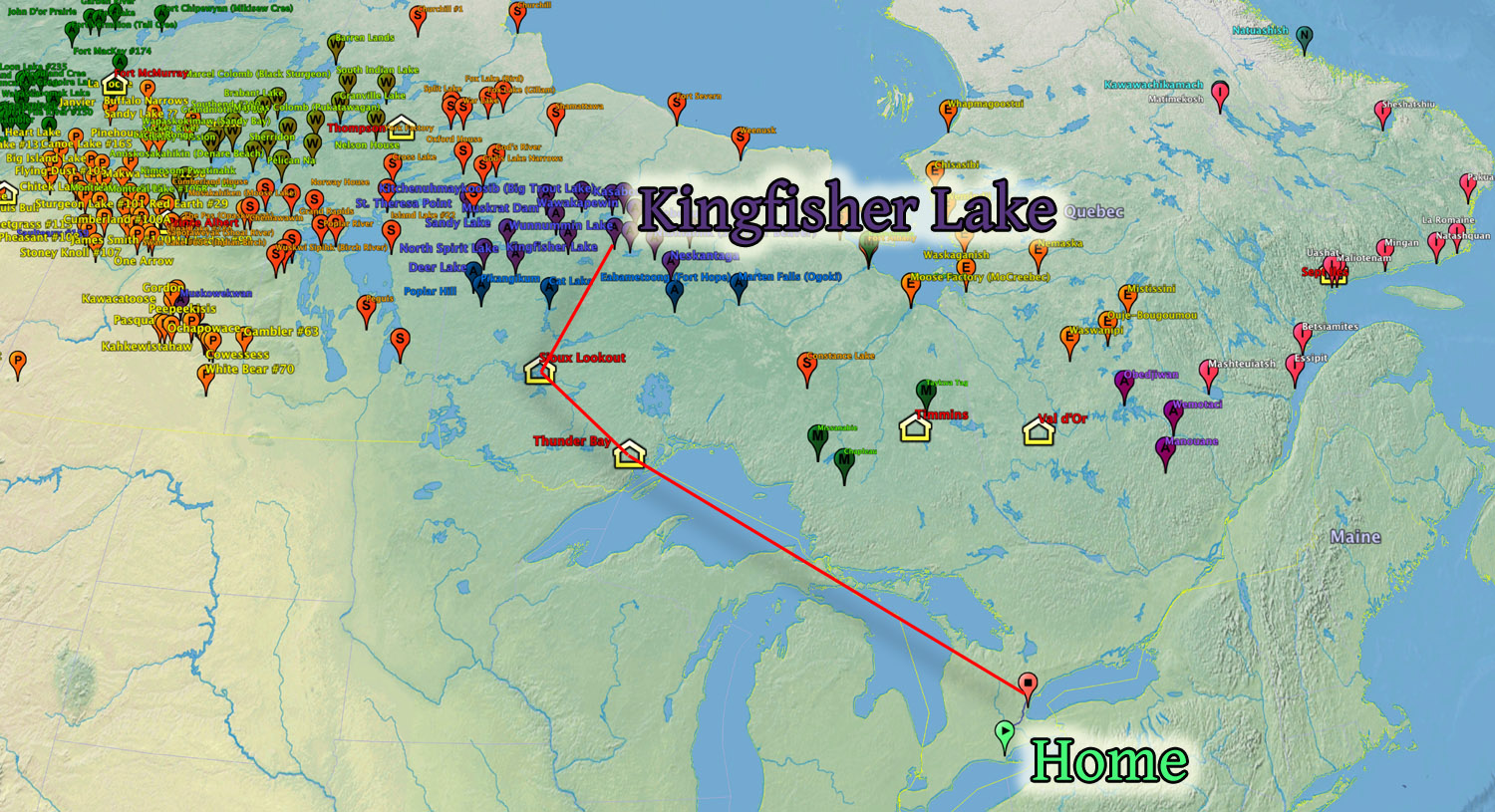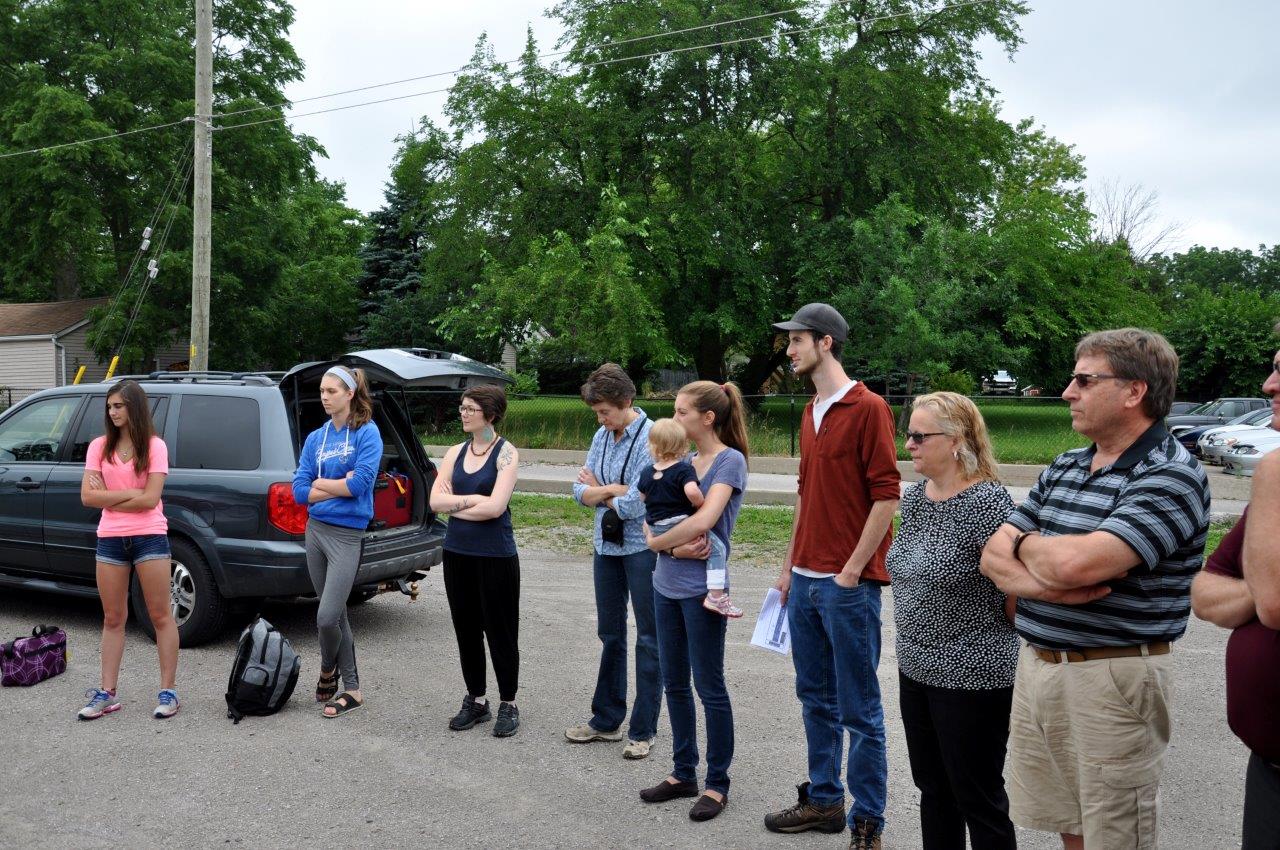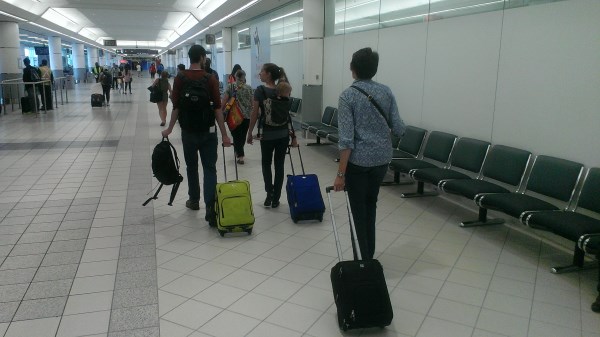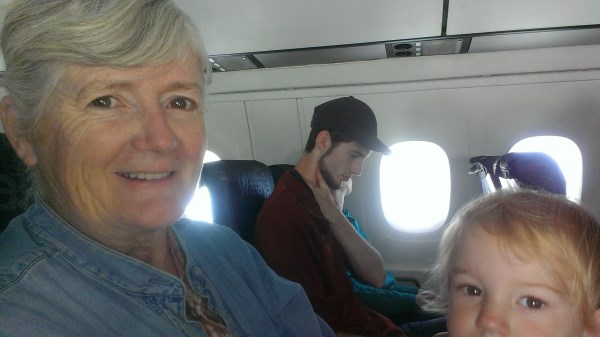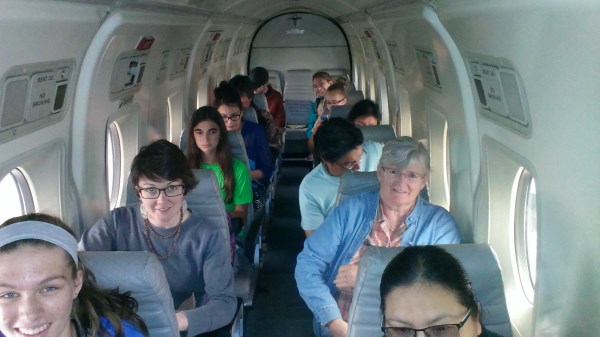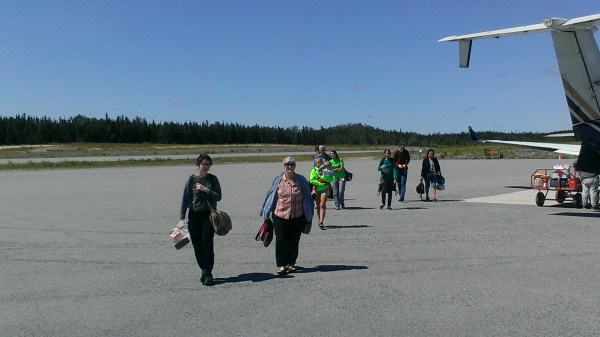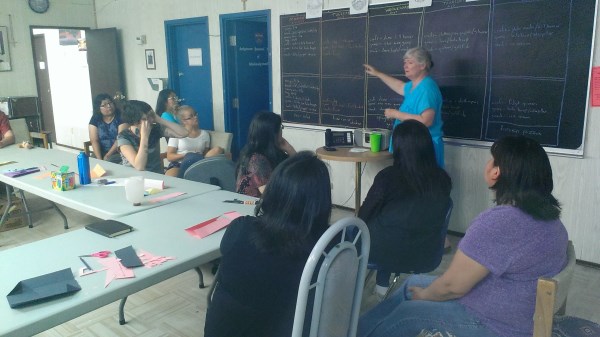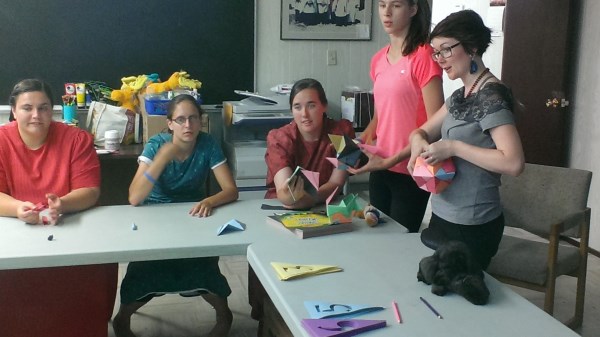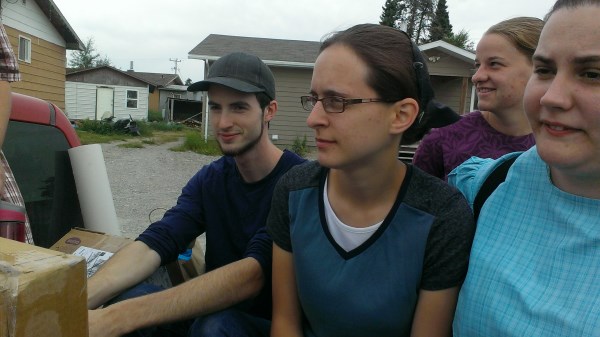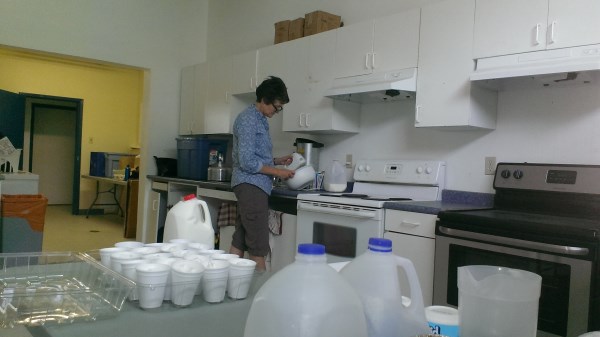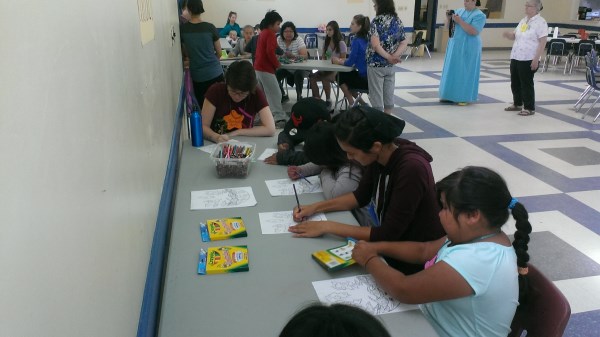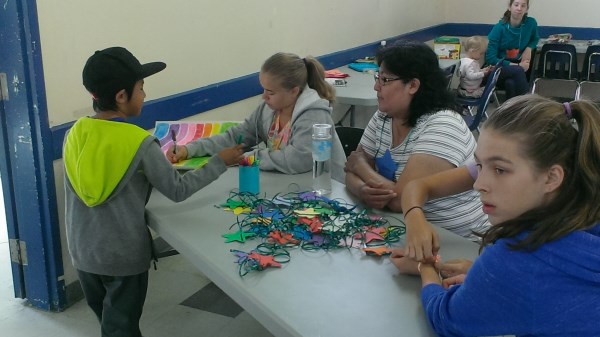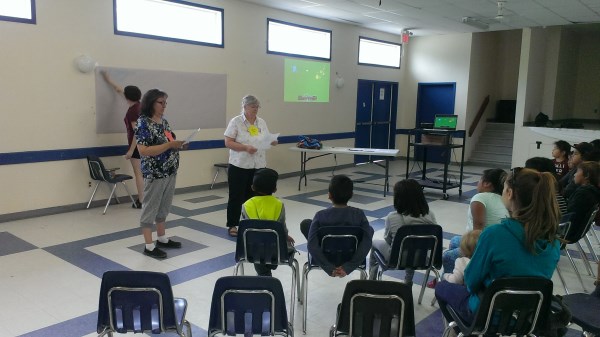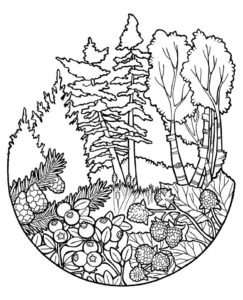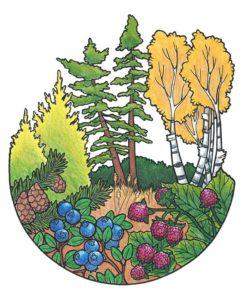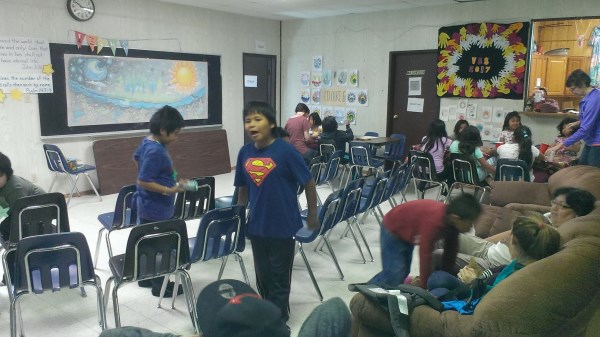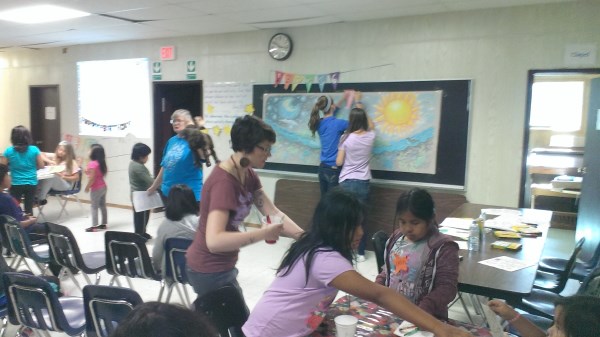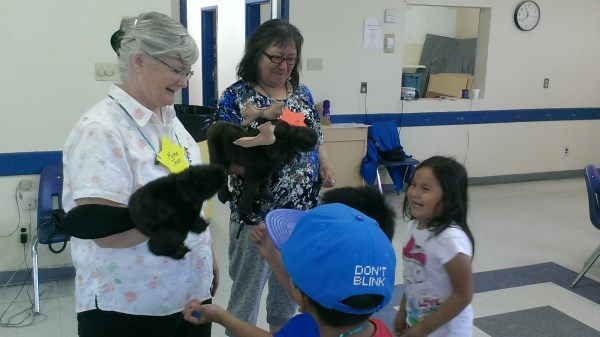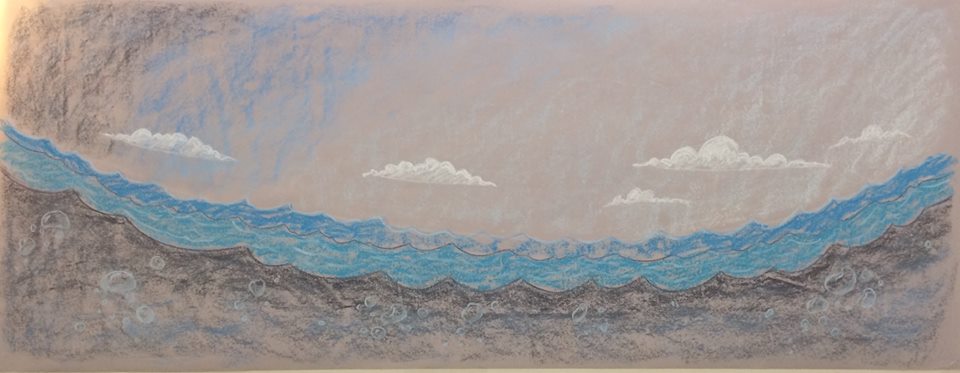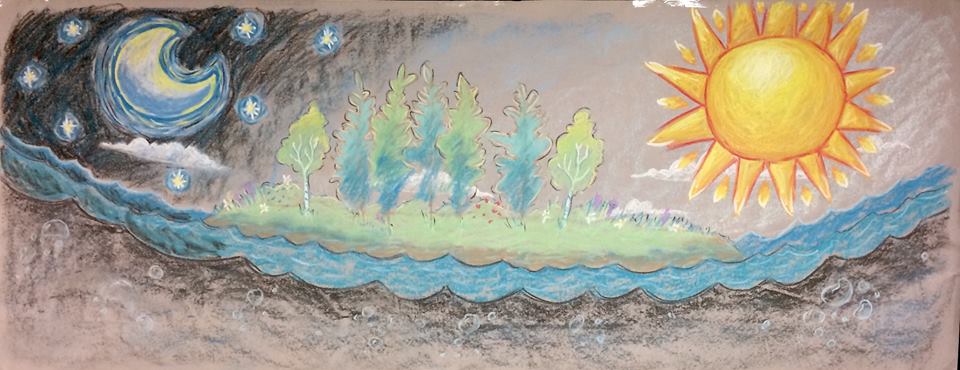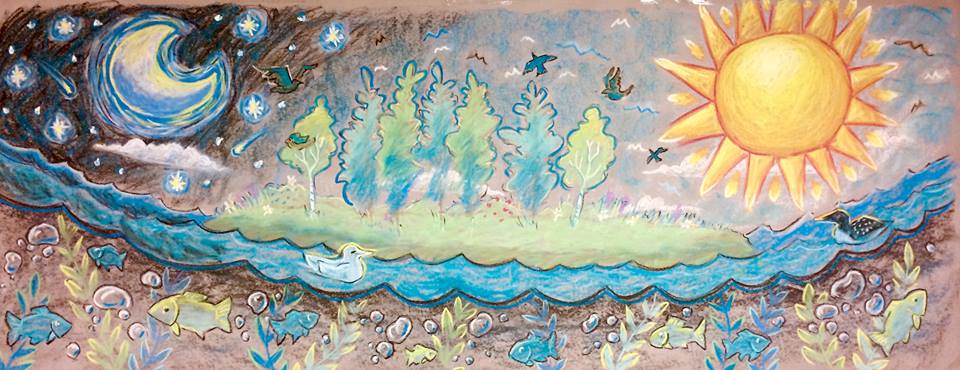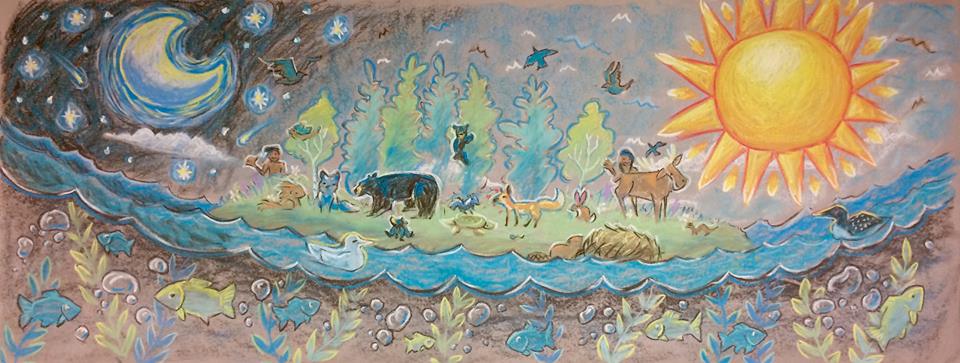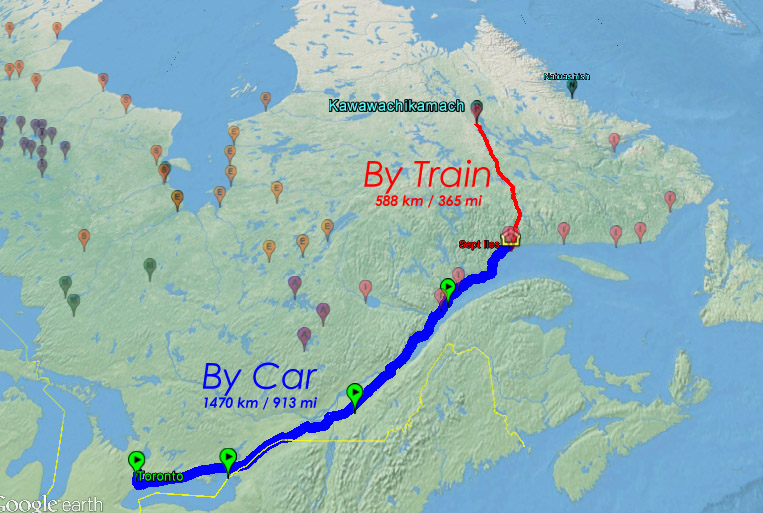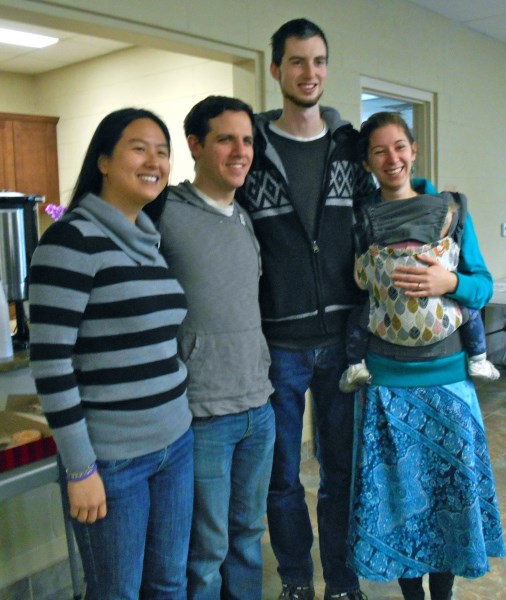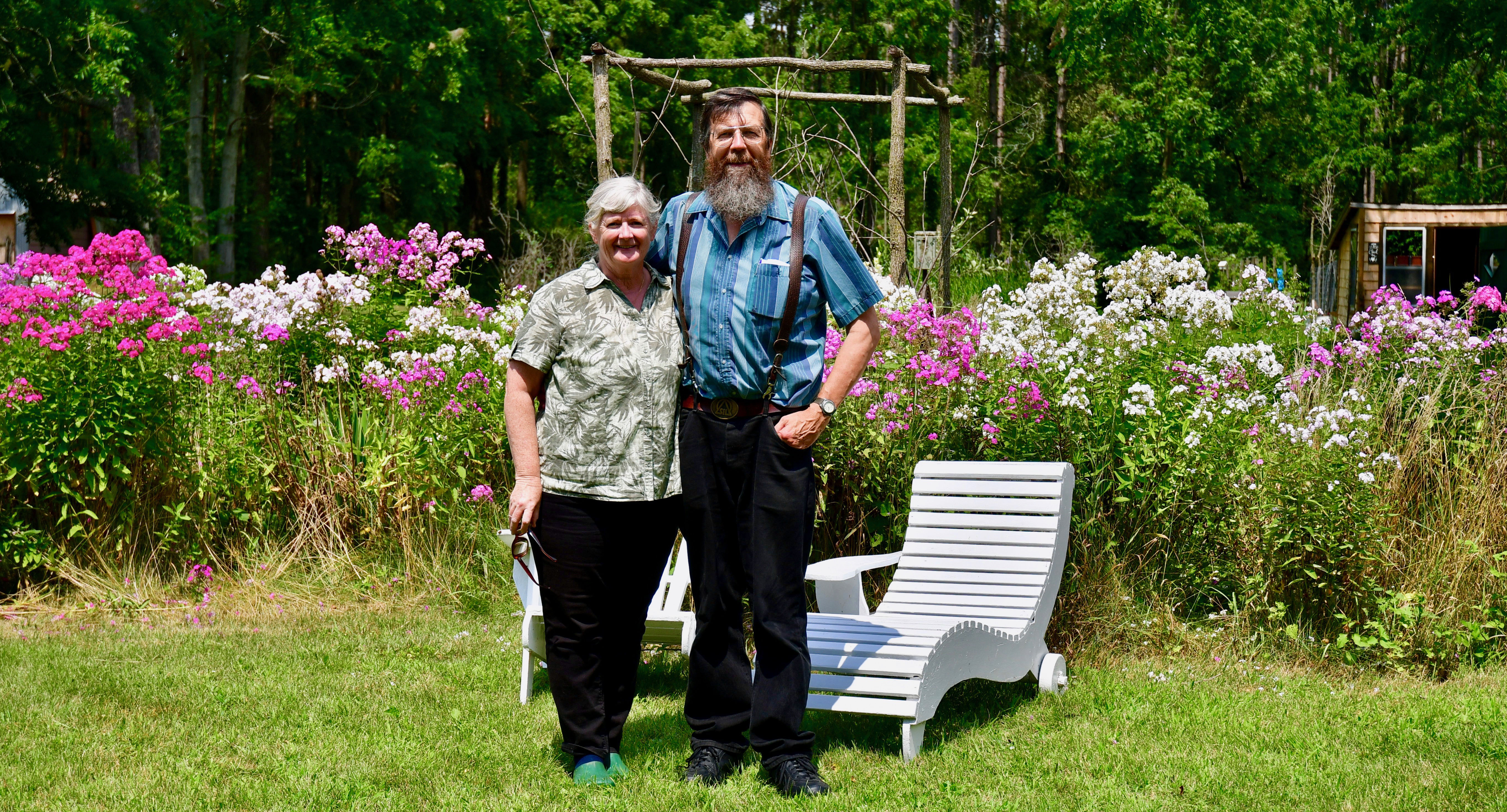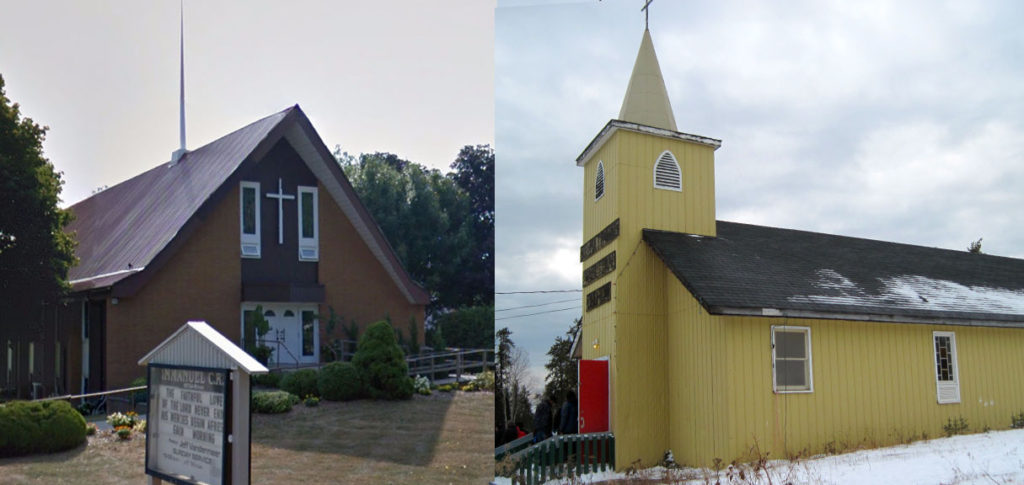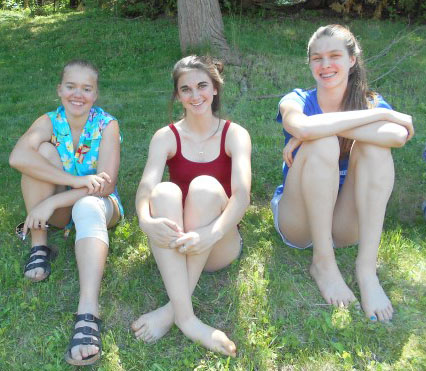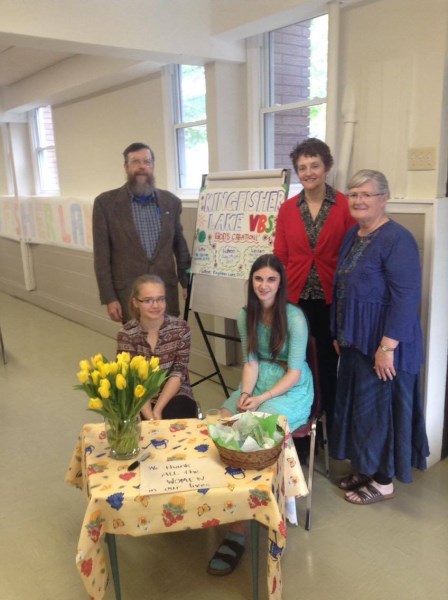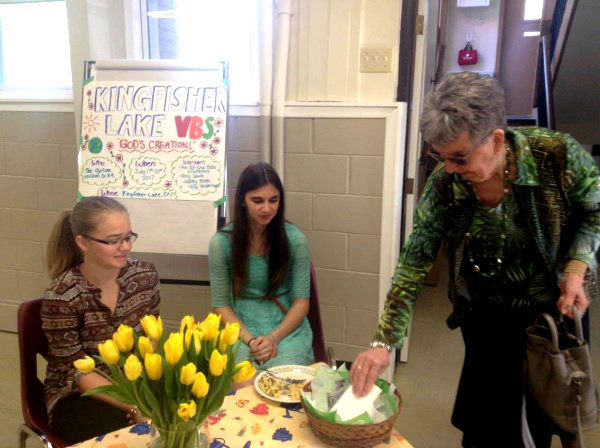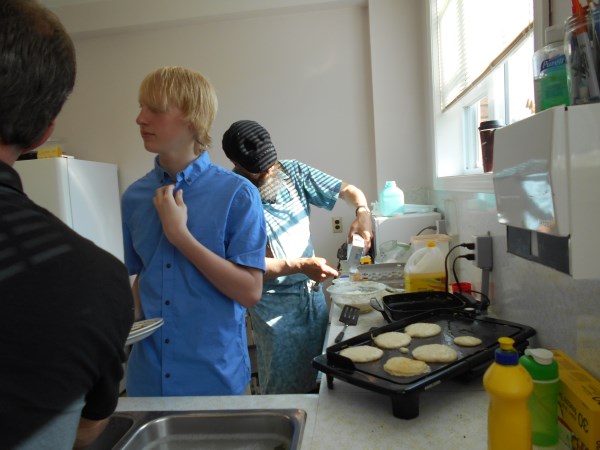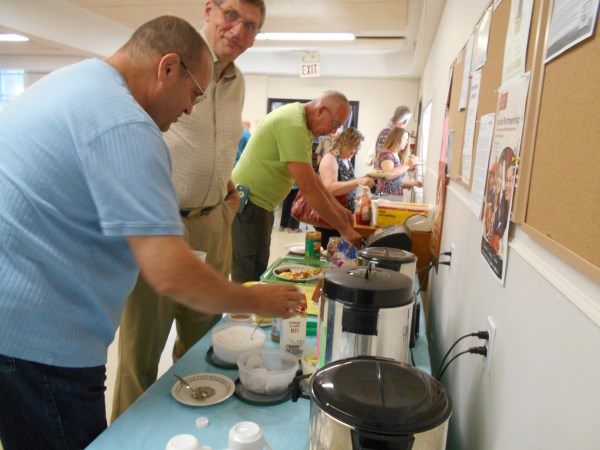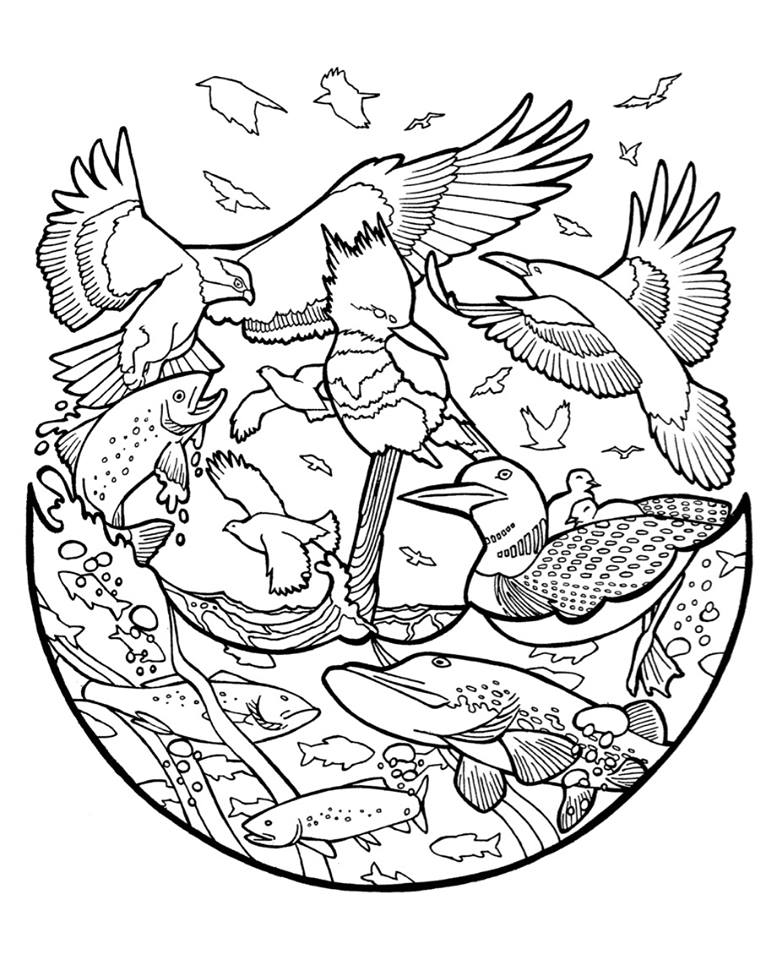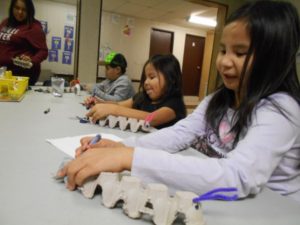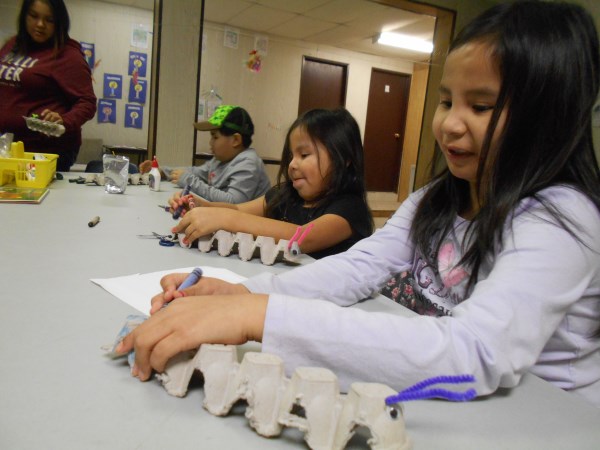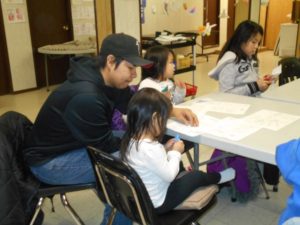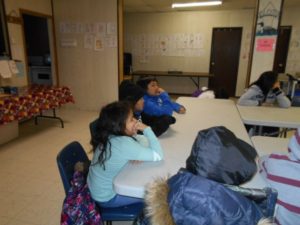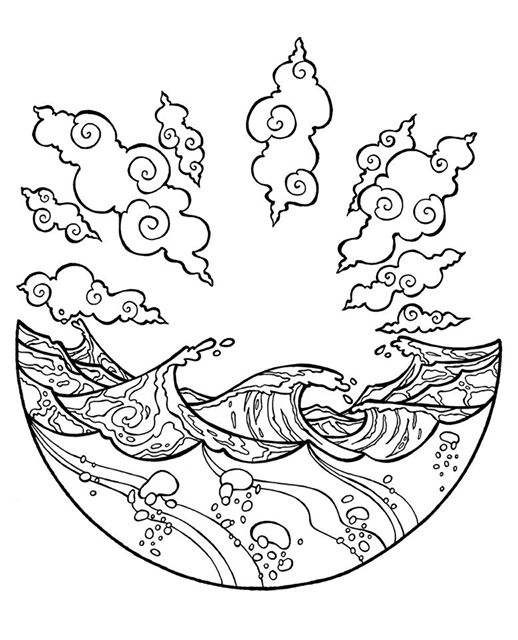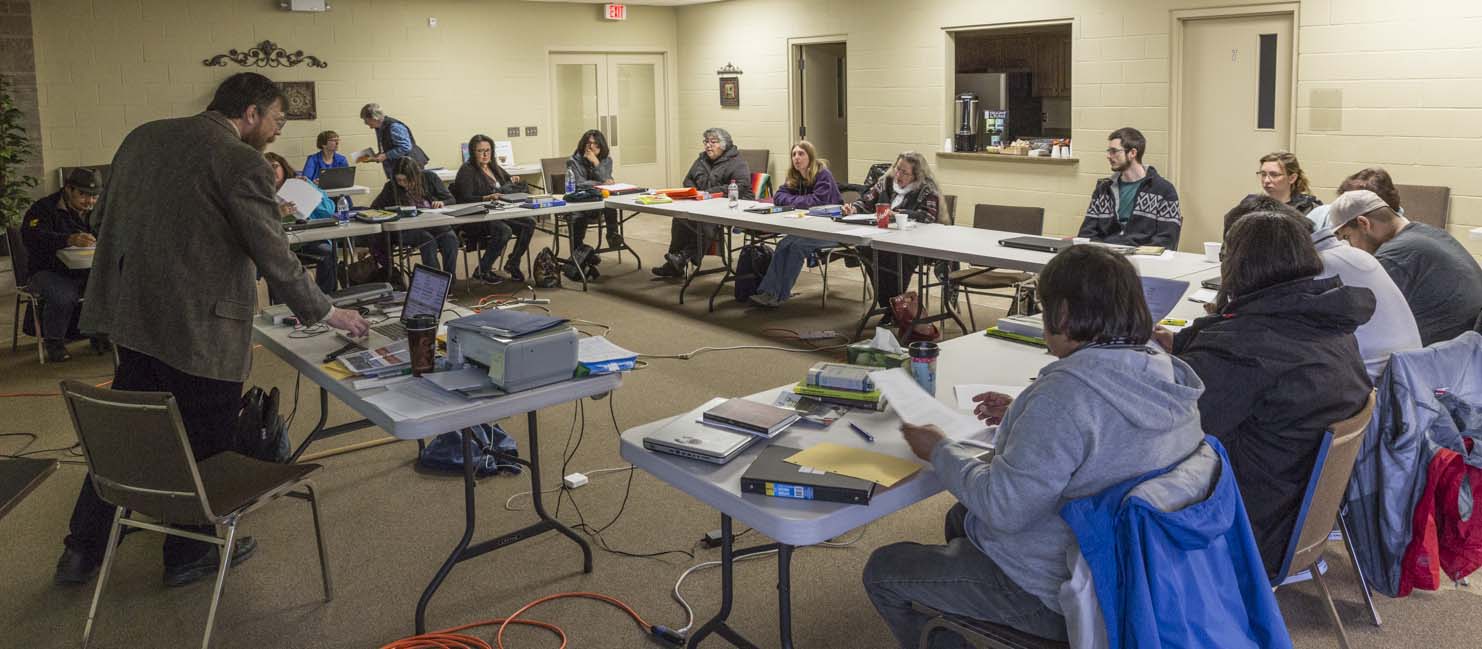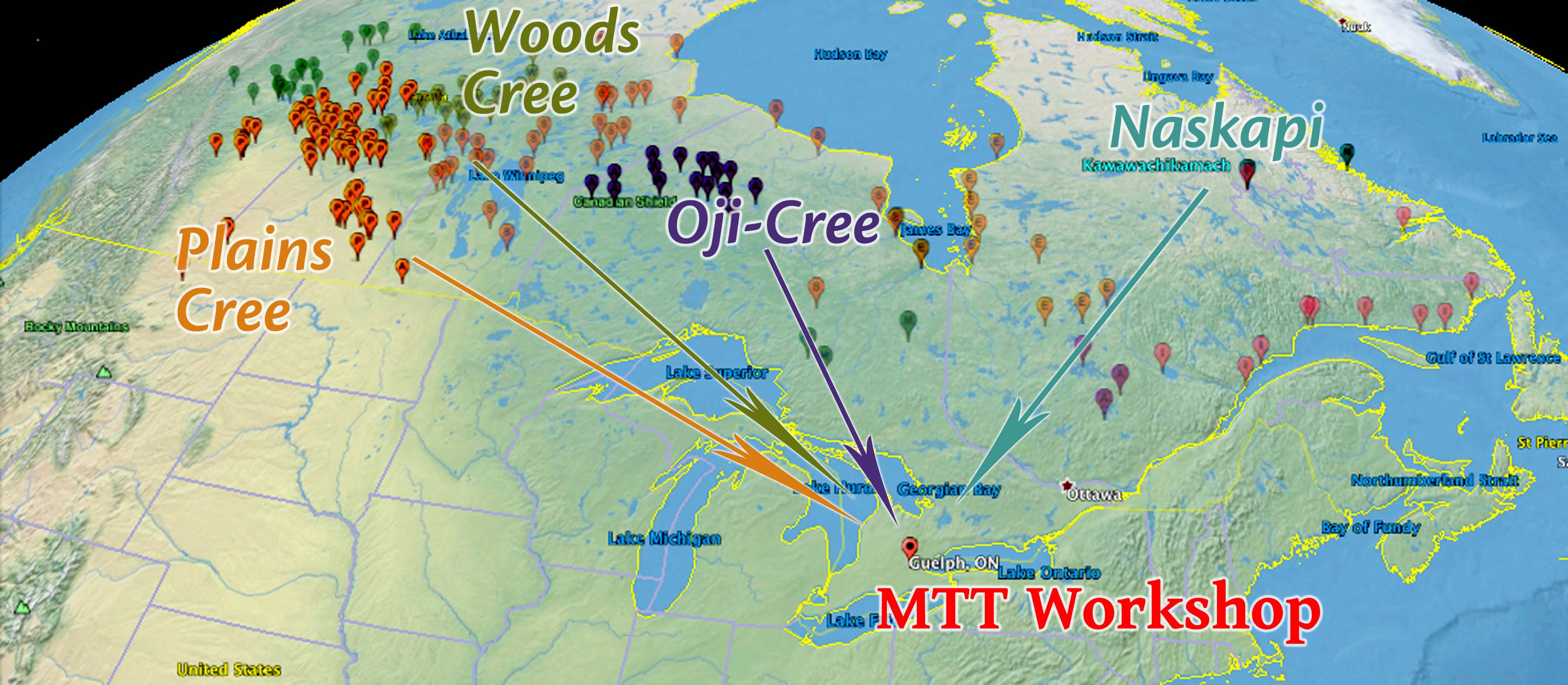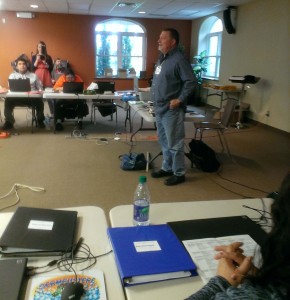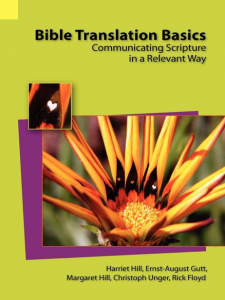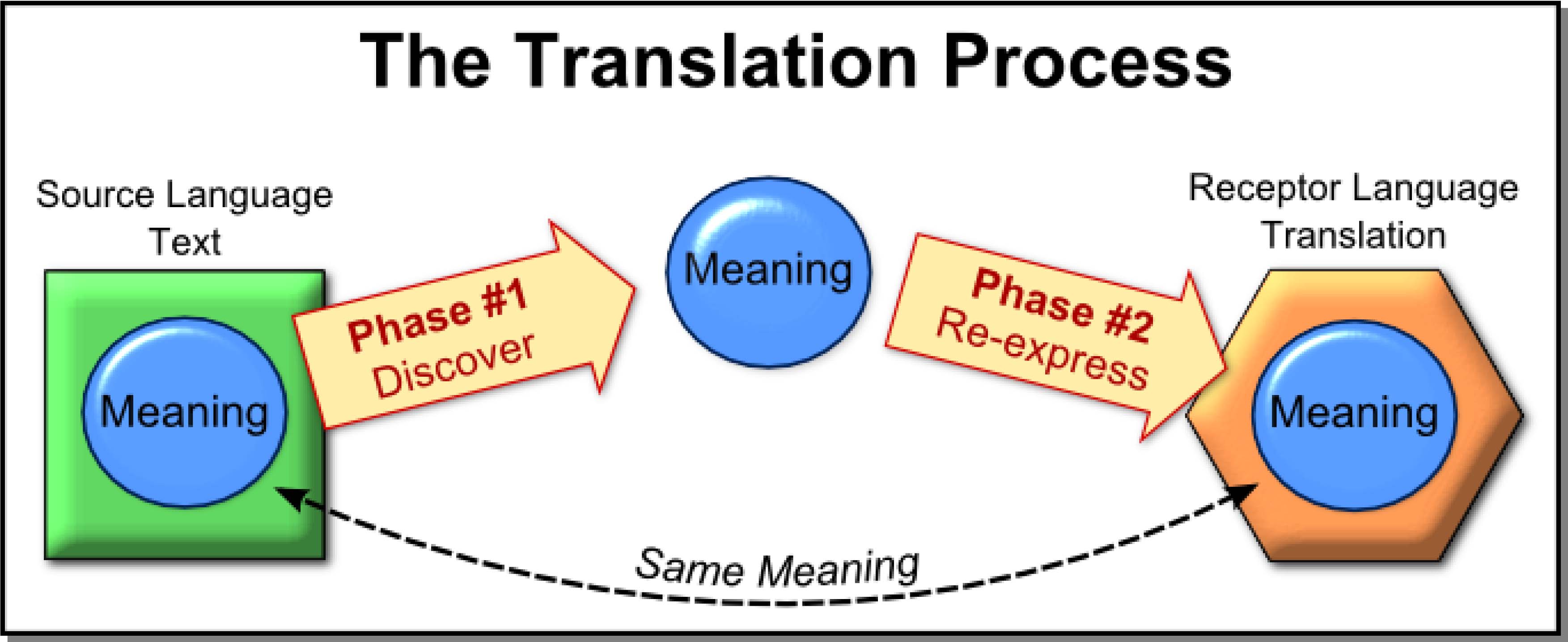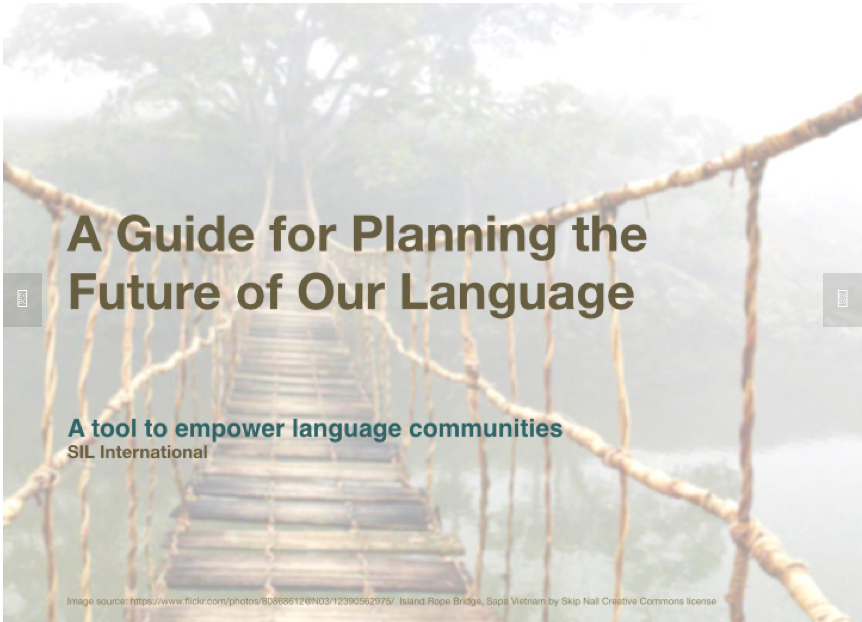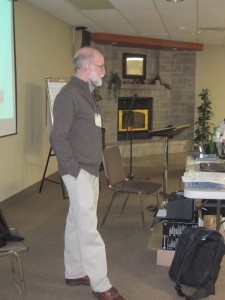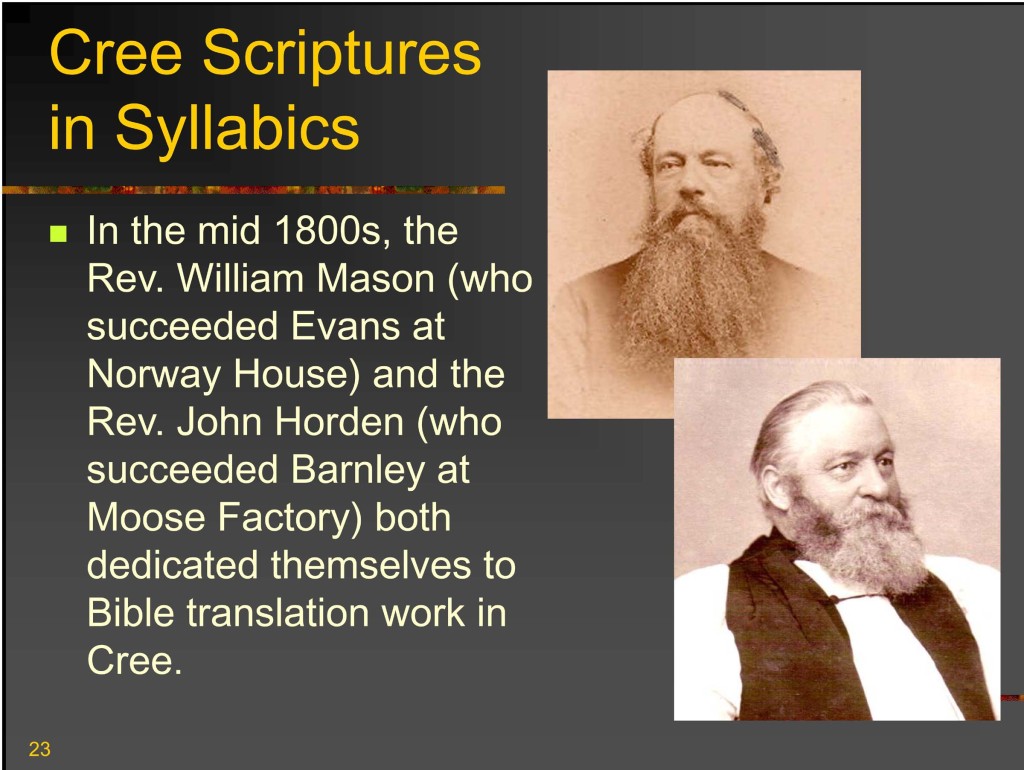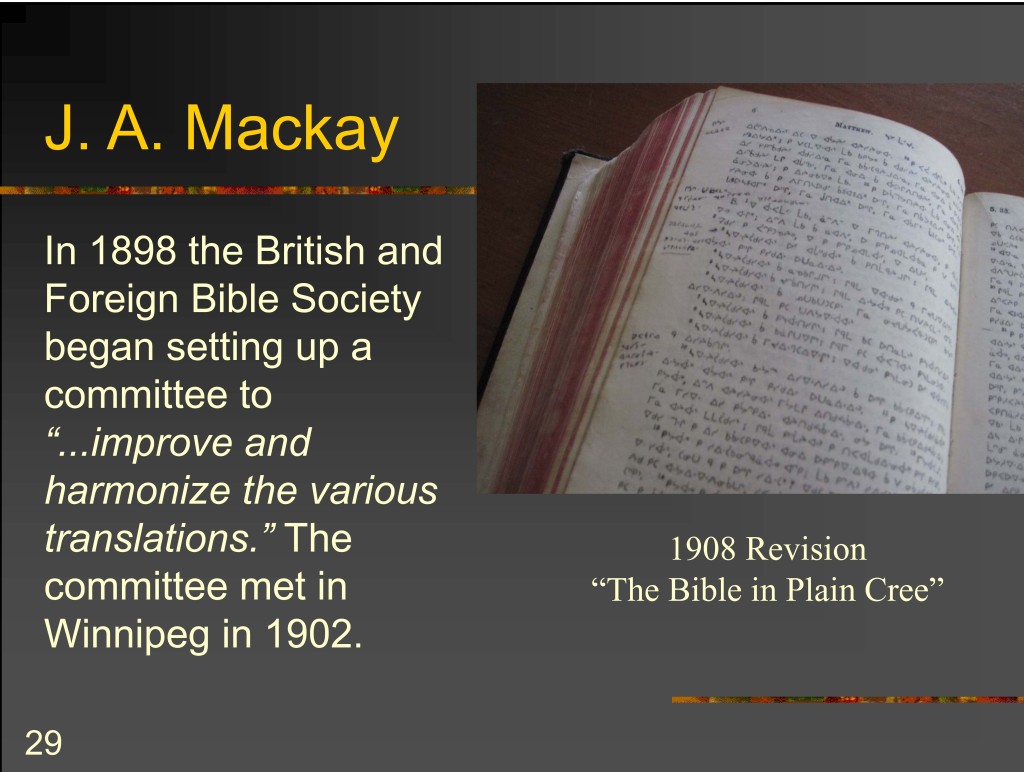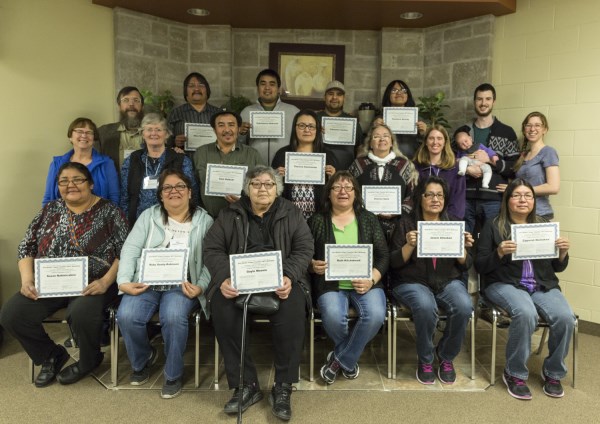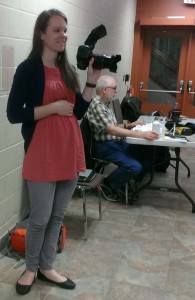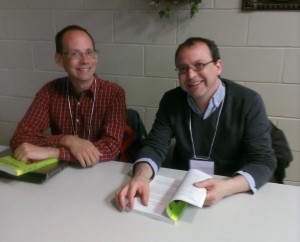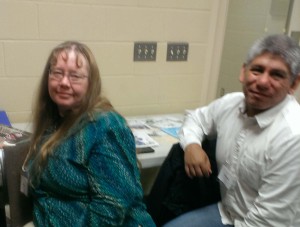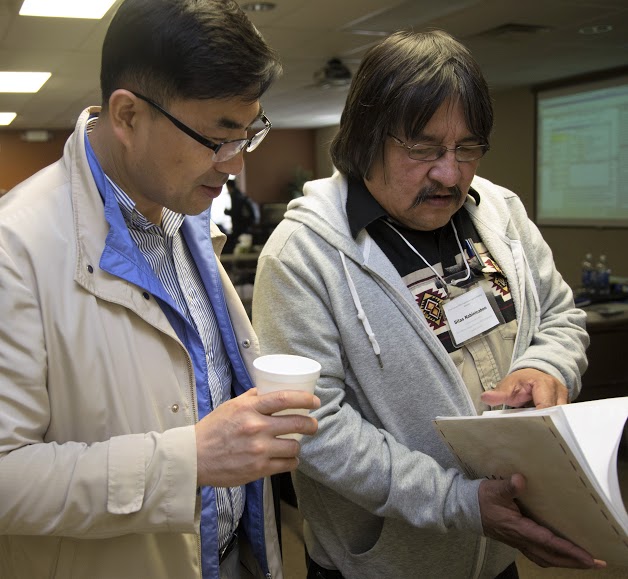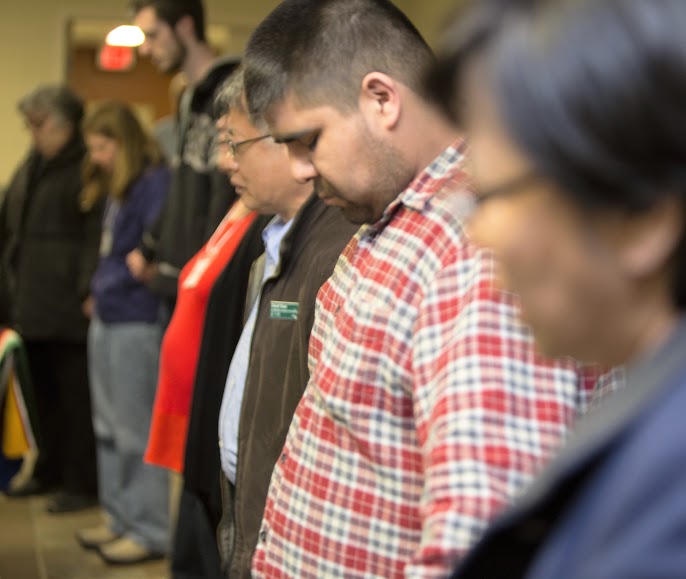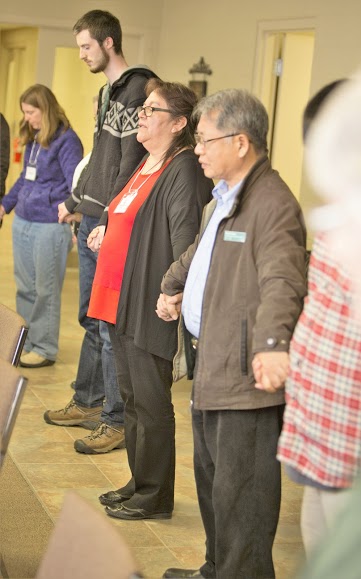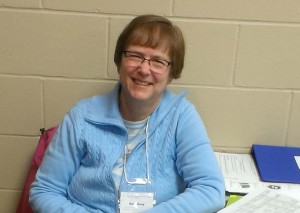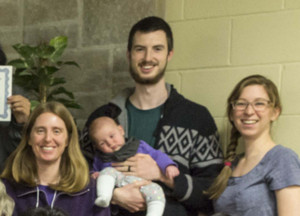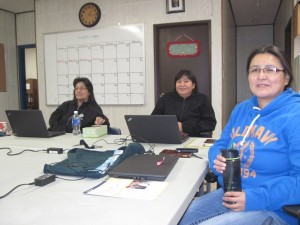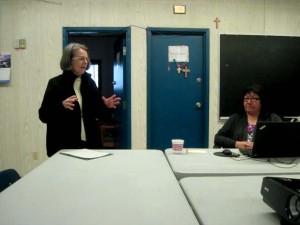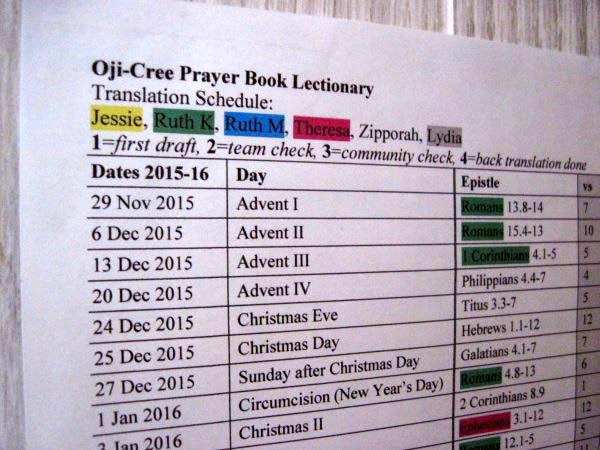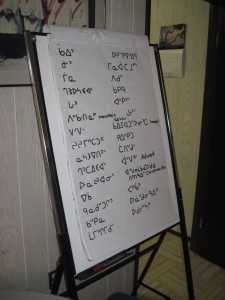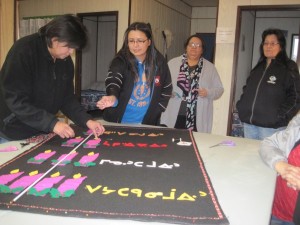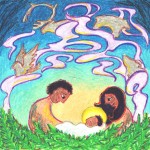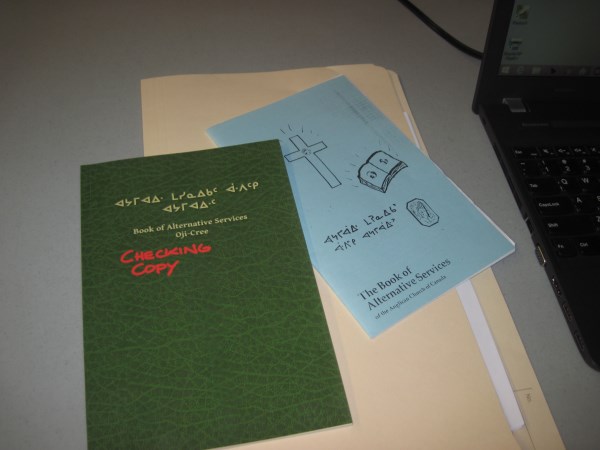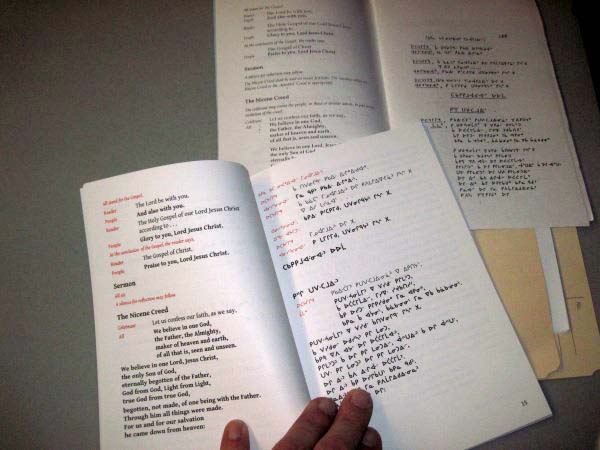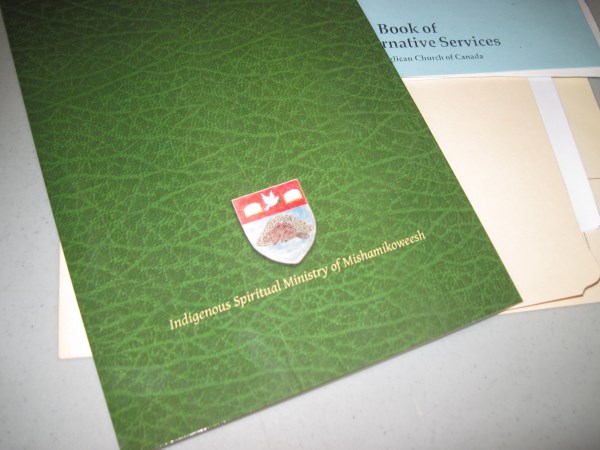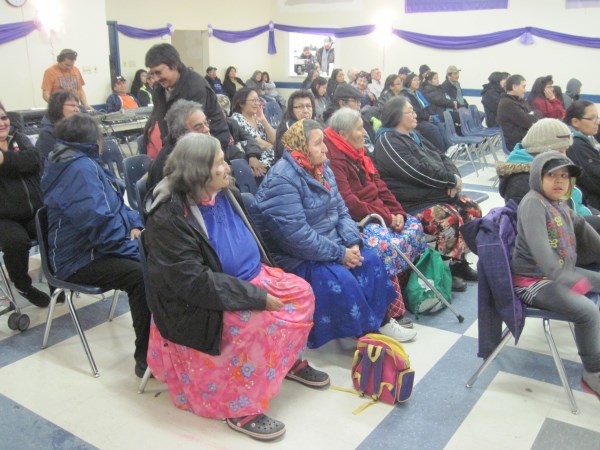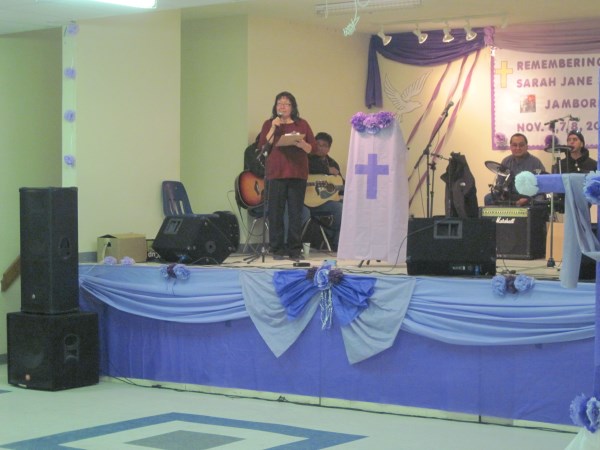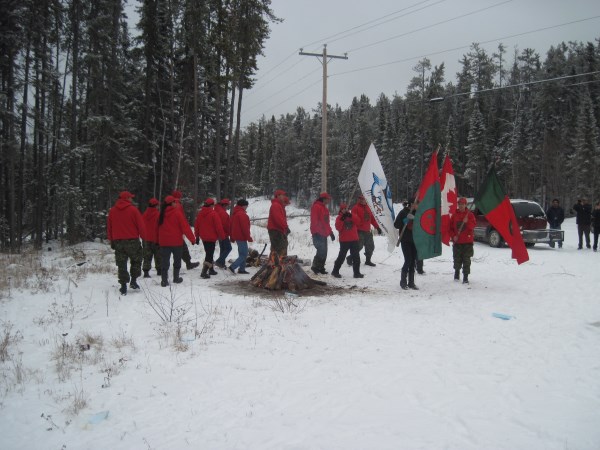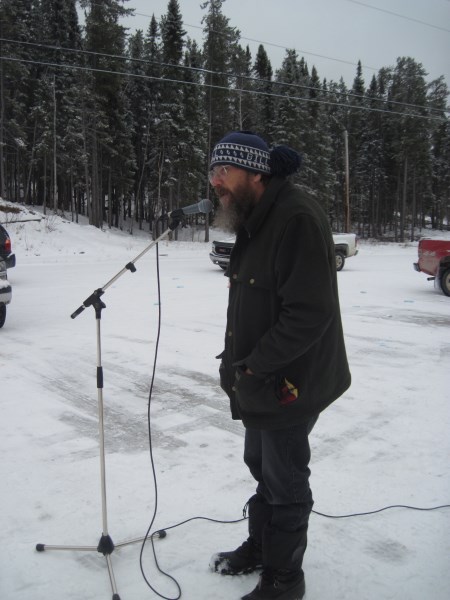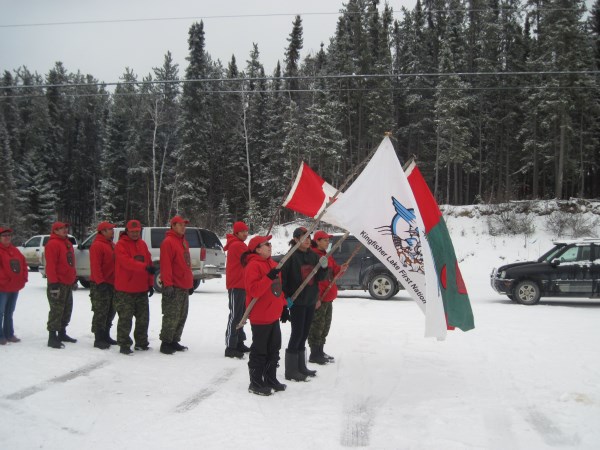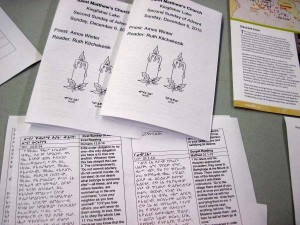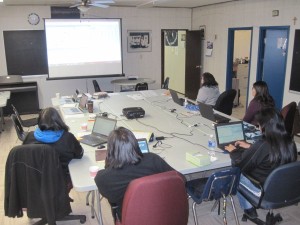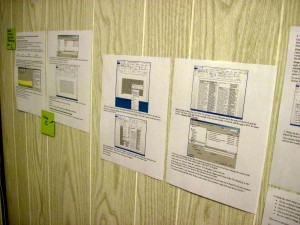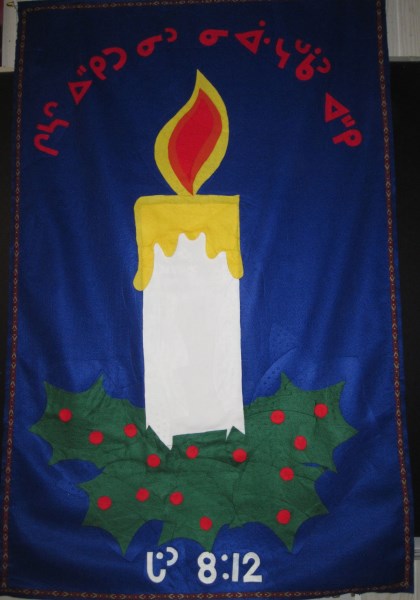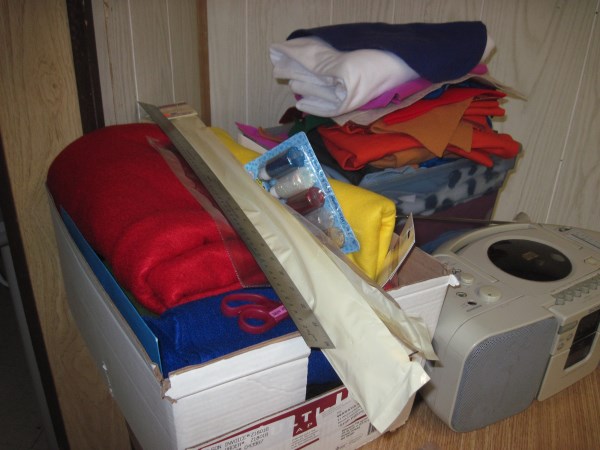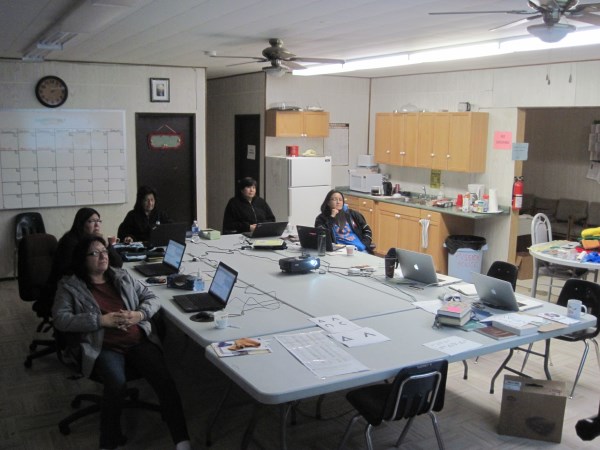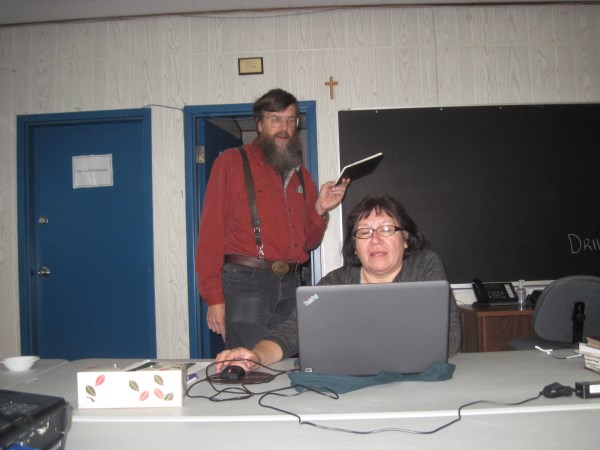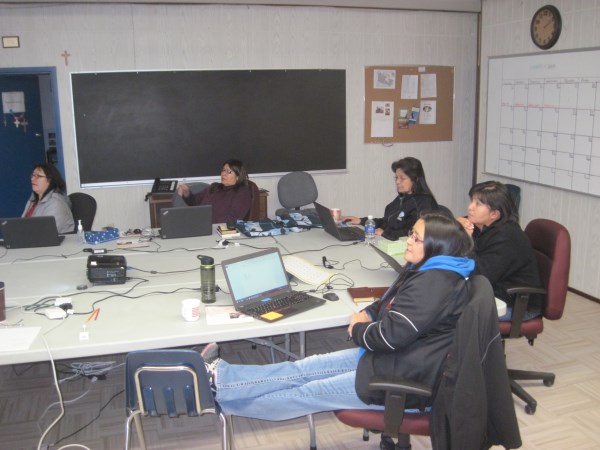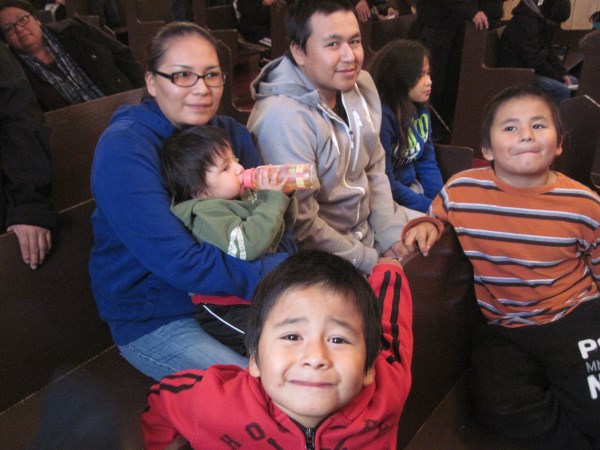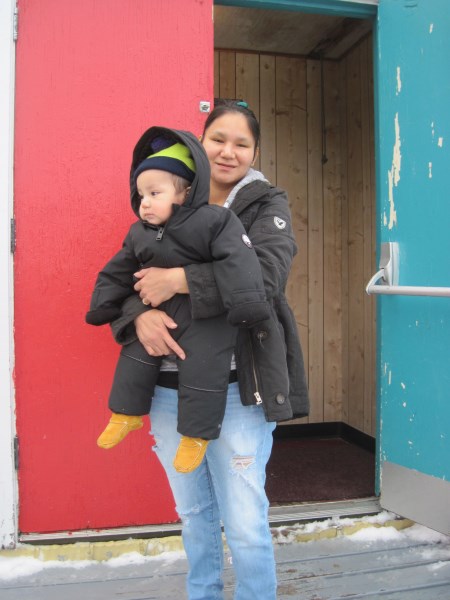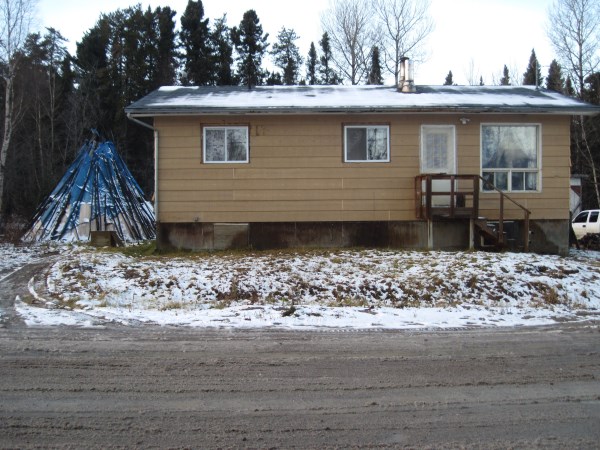Our Dear Partners,
Thank you for your prayers for the Kingfisher Lake Oji-Cree Vacation Bible School (VBS) that was held this summer the week of July 17-21, 2017. This “Scripture Engagement” event got its start when the Oji-Cree Bible Translation team in Kingfisher Lake expressed their hearts desire for the children of their community, their next generation, to hear the message of the Gospel in their own language. The planning for this began back last January, during the first “consultant check” of their translated scriptures. Read about that here if you forgot: <Click Here>
Travel to the North
Kingfisher Lake is an isolated First Nations community in northern Ontario, where the Oji-Cree language is spoken. On Friday morning, July 14th, ten travelers met with loved-ones and members of the Simcoe, Ontario Immanuel CRC church congregation for prayers and farewells before we drove to the Toronto Pearson airport for the first leg of the trip, a 2-hour flight to Thunder Bay.
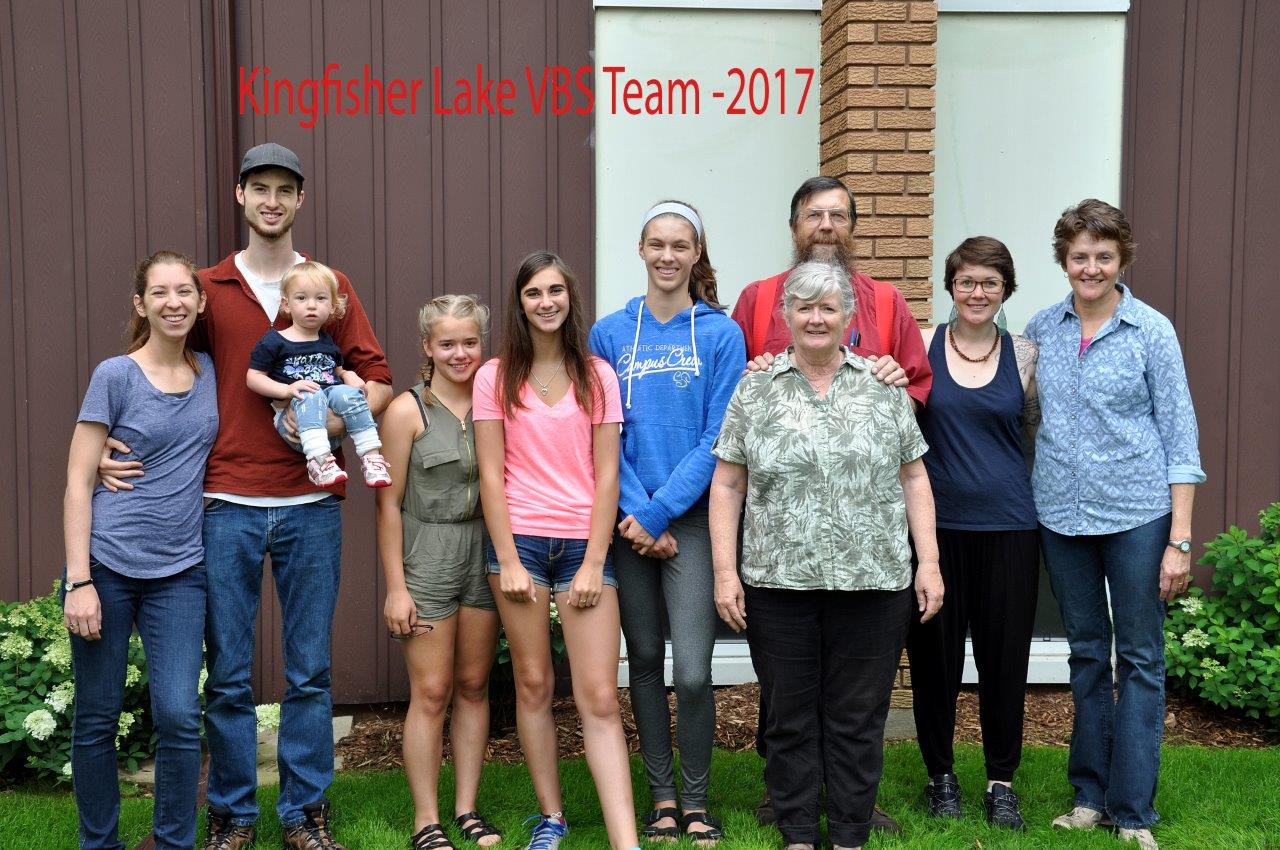
Left to Right: Caitlin & Matthew Windsor with Hazel, Ashley Booth, Amy Lewis, Elly Vandermeer; Bill & Norma Jean with Elizabeth Jancewicz, and Ann Rauwerda.
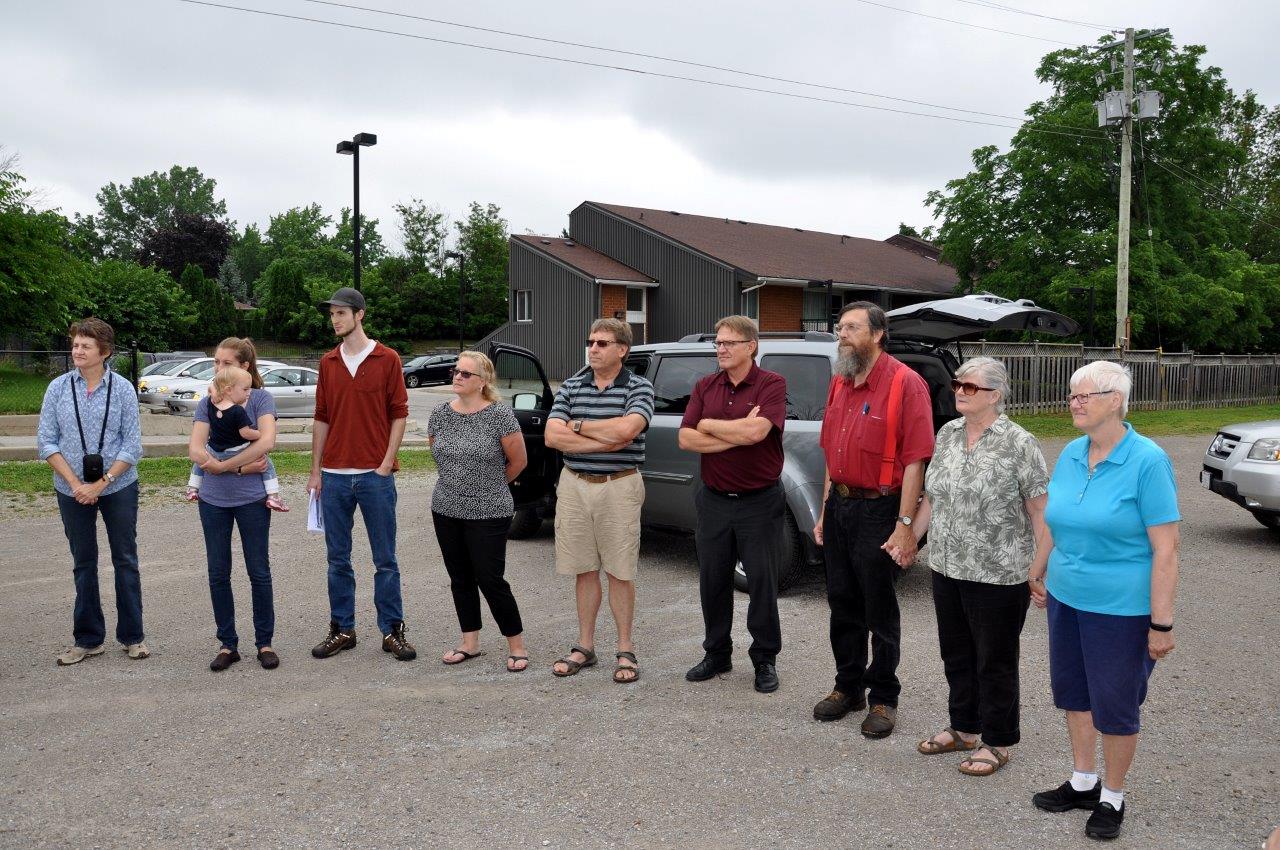 Immanuel church had been praying and fundraising so that they could send three of their youth, Amy Lewis, Elly Vandermeer and Ashley Booth, along with Ann Rauwerda, a Sunday School worker, who would assist with the VBS program. Our daughter Elizabeth Jancewicz had been working for months helping with the plans and creating the culturally-appropriate visual images and crafts for the program. Norma Jean was the overall VBS coordinator and liaison with the Oji-Cree team. We were also accompanied by Matthew & Caitlin Windsor, a new Wycliffe Bible Translation facilitator team who have just completed their training and partnership development and are currently spending time with us as part of their final preparation for moving to the community. Matt & Caitlin also had their one-year-old baby girl Hazel along.
Immanuel church had been praying and fundraising so that they could send three of their youth, Amy Lewis, Elly Vandermeer and Ashley Booth, along with Ann Rauwerda, a Sunday School worker, who would assist with the VBS program. Our daughter Elizabeth Jancewicz had been working for months helping with the plans and creating the culturally-appropriate visual images and crafts for the program. Norma Jean was the overall VBS coordinator and liaison with the Oji-Cree team. We were also accompanied by Matthew & Caitlin Windsor, a new Wycliffe Bible Translation facilitator team who have just completed their training and partnership development and are currently spending time with us as part of their final preparation for moving to the community. Matt & Caitlin also had their one-year-old baby girl Hazel along.
Because of flight connections to the northern communities, we spent the night in Thunder Bay at a hotel and got up bright and early to take the morning flight to Sioux Lookout on Wasaya Airlines, a First Nations-owned airline that services the northern communities in Ontario and Manitoba.
 After Sioux Lookout, we change to an even smaller plane, and make some stops in other First Nations communities.
After Sioux Lookout, we change to an even smaller plane, and make some stops in other First Nations communities.
So, after three planes, six airports, 1100 miles, 14 hours, two time zones, and one sleep all in one and the same Canadian province, we made it to the Kingfisher Lake community in northern Ontario.
Vacation Bible School
The first little adjustment was when we found out that the Vacation Bible School program was going to be held in a different venue: The “Mission House”, where we were staying, was also occupied by construction workers who were working on new housing in the community and the power station, so there was no room to hold a Vacation Bible School program there as originally planned. So our Oji-Cree hosts made arrangements for us to use the Kingfisher Lake Community Centre, across town. This was fine–a bright big space to use for crafts, teaching and games.
We met with the local leaders and Oji-Cree Sunday School teachers, and even though they had just finished their annual summer Bible Camp program for adults, and many of them had been very busy the week before, they still wanted to participate as much as possible with the VBS. So they were on hand to work the schedule and divide up the workload to ensure that their Vacation Bible School had adequate Oji-Cree speaking staff available for each session of the week-long Vacation Bible School program.
The program was planned for each of the five days–with the younger children, from kindergarten age to grade 3 coming in the morning, and then the older children through grade 8 coming in the afternoons. The lessons planned were from the “seven days of creation” Bible passages in Genesis, with the text coming from their new translation into Oji-Cree of the first chapters of Genesis.
A team of Mennonite missionaries were also there, spending the summer at Kingfisher Lake, serving the community in any way they could. So they also helped on the staff of VBS during the week that we were there.
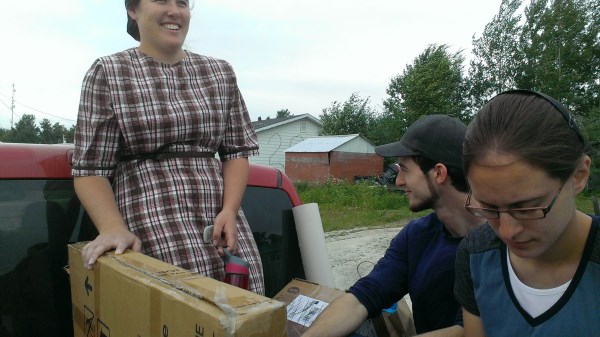 Each lesson was also planned so as to be connected to a facet of the Gospel: that God loves us, and Jesus died for us and that we can know this. This was reflected in the memory verses used each day. For example “God Created the World” and “God so Loved the World“.
Each lesson was also planned so as to be connected to a facet of the Gospel: that God loves us, and Jesus died for us and that we can know this. This was reflected in the memory verses used each day. For example “God Created the World” and “God so Loved the World“.
 Setting up on Day One
Setting up on Day One
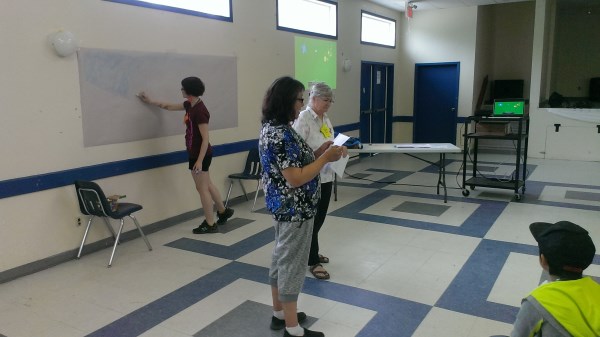 During each day’s Story Telling and Oji-Cree Bible Reading, our daughter Elizabeth, provided a live chalk drawing mural that illustrated all the days of creation, especially prepared for this northern First Nations audience. The images in the mural were complemented by especially crafted colouring pages for each day of the program.
During each day’s Story Telling and Oji-Cree Bible Reading, our daughter Elizabeth, provided a live chalk drawing mural that illustrated all the days of creation, especially prepared for this northern First Nations audience. The images in the mural were complemented by especially crafted colouring pages for each day of the program.
The children enjoyed making a special handcrafts each day that went along with the story, playing games, and eating snacks. This was repeated twice a day, once for the younger children and once for the older ones.
So once we got the VBS program set up and got through Day One, we figured that the hard work was done, and the rest of the week would be a breeze. ( ! )
Challenges to Overcome (God is Good!)
During our first day of VBS, the construction workers at Kingfisher Lake were having some challenges of their own, when a water pipe was accidentally broken, which shut down the water supply for the whole community. At first we thought the fix meant that we simply had to boil the water that came through the tap. But eventually the water we got had to be carried up from the lake in buckets and pails and boiled on the stove. Our hosts tried to keep us supplied with bottled water, but it quickly became scarce in the community. Washing and cooking suddenly became somewhat less convenient to say the least!
Toilets could be used, but we flushed them with a bucket.
During the second day, the community sewer system backed up into the local grocery store, so the store was forced to close. This cut off the main food supply to the whole community (and to us as well, since we had counted on providing the VBS staff with meals from the store). Our hosts brought “country food” from their freezers and we had a community cook-out behind the Mission House. So we were well-supplied with meals in spite of having little choice as to the menu!
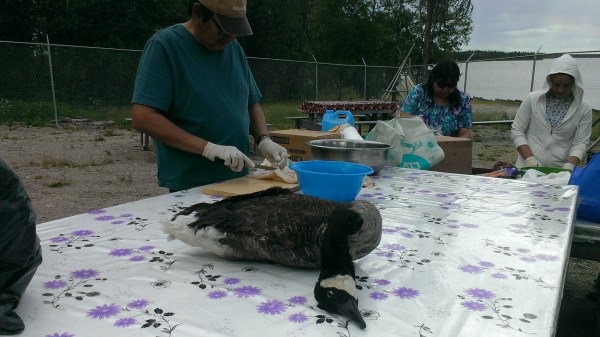
 The water crisis caused the construction workers to evacuate and so they left to go to their home communities.
The water crisis caused the construction workers to evacuate and so they left to go to their home communities.
During the third day, we were given the good news that emergency provisions were being brought into the community–but the bad news was that they needed to set up the distribution of food at the Community Centre, so VBS had to move. After the morning VBS session on Wednesday, we took down the VBS materials and cleared the community centre, hauling everything (crafts, games, snacks and all) back to the Mission House. Since the construction workers had evacuated, we were able to use the lower level of the Mission House to set up the VBS program for that afternoon, and we did not miss even one session!
But we also learned that we could not use even the toilets with a bucket (the bucket was put to “other uses”, along with a shovel).
During the fourth day, we were relieved to hear that both the water and the drains were back in service, and the grocery store was now operating out of it’s temporary quarters in the Community Centre. We continued with Vacation Bible School at the Mission House, and the kids continued to come and play and learn.
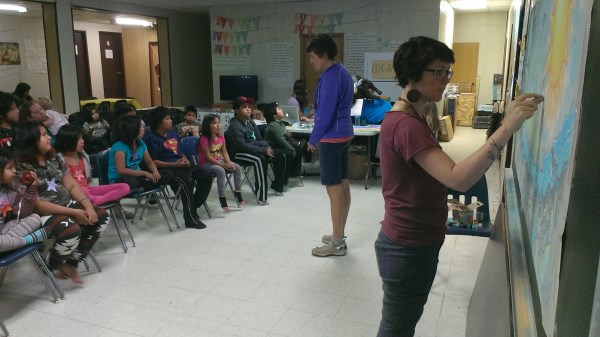
Elizabeth moved her mural illustrating the days of Creation, and continued working on it to completion at the end of the week
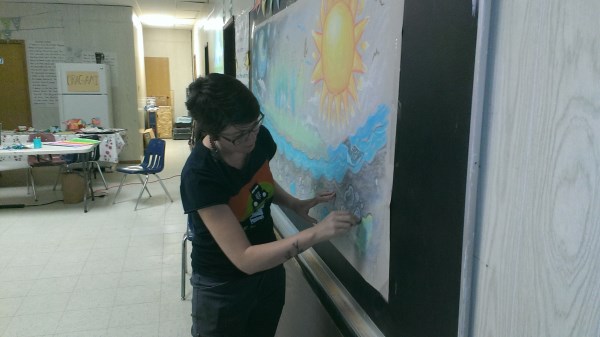
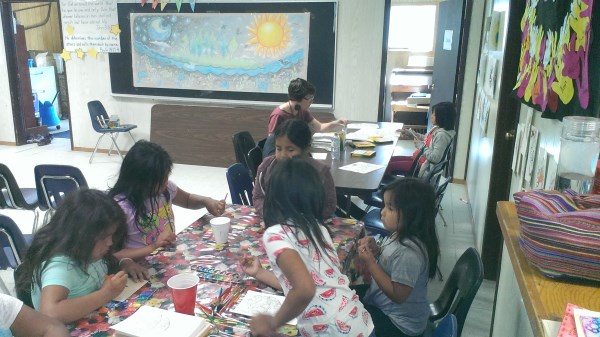 By Friday, the fifth day, Vacation Bible School was almost over. All the Bible Stories for the seven days of Creation were told, and children recited the Bible verses that they had memorized. All told, fifty-three children attended at least some of the sessions throughout the week, more than half of the children of the community.
By Friday, the fifth day, Vacation Bible School was almost over. All the Bible Stories for the seven days of Creation were told, and children recited the Bible verses that they had memorized. All told, fifty-three children attended at least some of the sessions throughout the week, more than half of the children of the community.
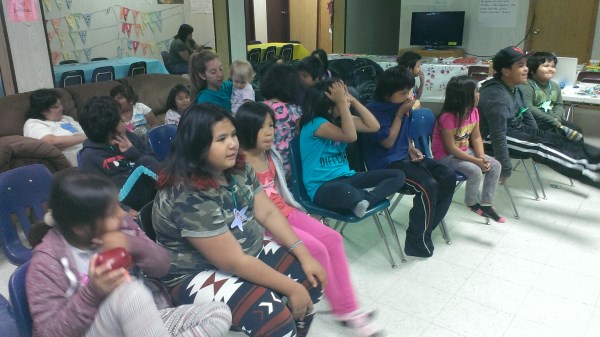
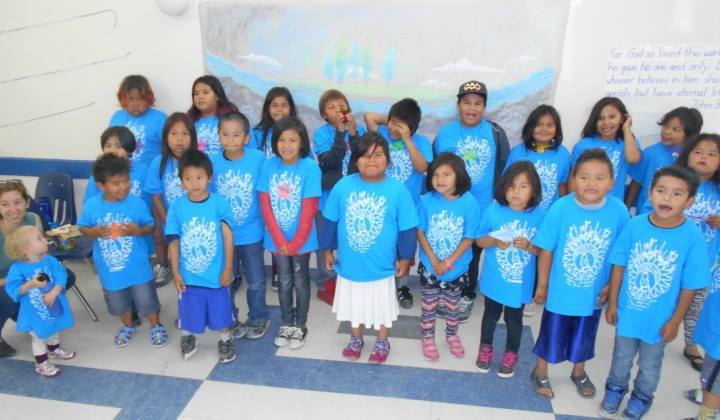 We left all the remaining crafts, game supplies and teaching materials with the local Oji-Cree Sunday School department so that they could continue to use these things for their Christian Education and Scripture Engagement activities. We also left the completed mural by Elizabeth: Here follows the progress on the mural that was worked on during Story Time and Bible Reading each session of the week:
We left all the remaining crafts, game supplies and teaching materials with the local Oji-Cree Sunday School department so that they could continue to use these things for their Christian Education and Scripture Engagement activities. We also left the completed mural by Elizabeth: Here follows the progress on the mural that was worked on during Story Time and Bible Reading each session of the week:
Thank you all for your interest and support for Bible translation in First Nations languages, and for your prayers for the Oji-Cree VBS program this summer! Lord willing, He will allow us to do this again.
After the VBS team went back south and home, Matthew Windsor and Bill stayed behind to work with the Oji-Cree translators. We helped them to upgrade and learn the software that they use for Bible Translation work: Paratext Version 8. They also put it to work right away as they team-checked some passages from 1 Corinthians and Luke.
Naskapi in Northern Quebec: August 24-September 8
Just next week, Norma Jean & Bill will bring Matthew & Caitlin and their little Hazel up to the Naskapi community of Kawawachikamach. The Naskapi have been hosting the new Wycliffe teams for their internships in preparation for serving in new First Nations Bible Translation projects in other areas of Canada. Alice & Martin Reed have been with the Naskapi now since March of this year, and plan to stay through November. Matthew & Caitlin plan to work with the Naskapi during their 8 month internship through next Spring.
While we are there, we will all be working with the Naskapi team on Naskapi Exodus and Psalms, and the next Naskapi language storybook and revisions & additions to the Naskapi Dictionary.
Please follow the work of this Next Generation of Bible Translation teams working in First Nations languages here:
Matthew & Caitlin Windsor https://thewindsorsupnorth.com/
Martin & Alice Reed https://www.facebook.com/ReedsKaleidoscope
Thank God for these new teams and pray that the Lord of the Harvest will bring more workers into His harvest field.
Thank you so much for your interest in God’s work among the First Nations of Canada and Bible Translation, and for praying for us and following our part in His call on our lives.
Serving with you,
Bill and Norma Jean Jancewicz
We ask that you consider becoming more involved and supporting this work by visiting these websites…
In the USA: https://www.wycliffe.org/partner/Jancewicz
In Canada: http://www.wycliffe.ca/m?Jancewicz

